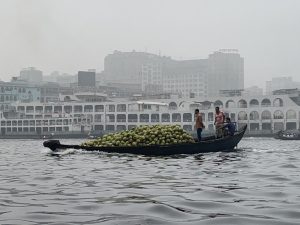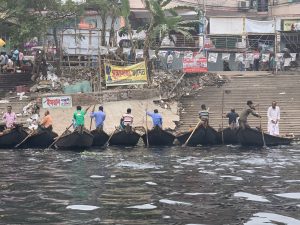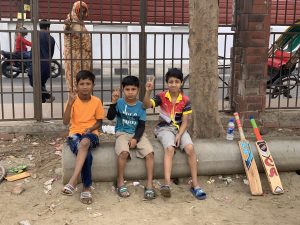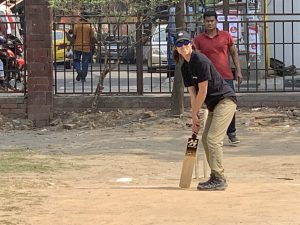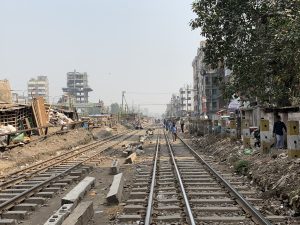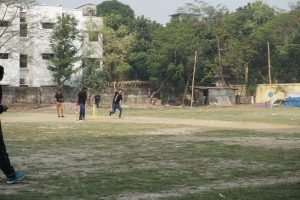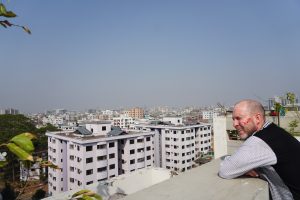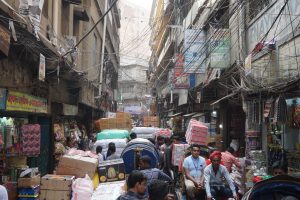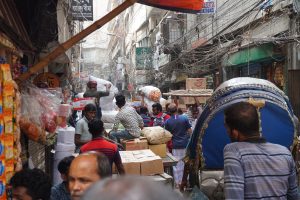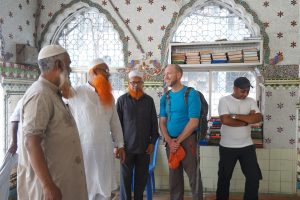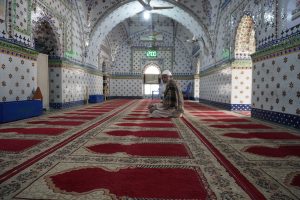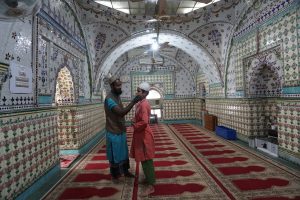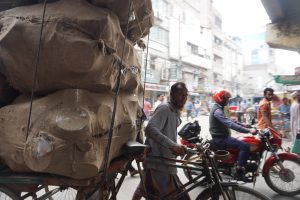Bangladesh: An Unexplored Country of Cuisine, Commerce, and Cricket
Bangladesh: An Unexplored Country of Cuisine, Commerce, and Cricket
Being hosted by E-generation was an amazing experience and taught us much about the local culture.
Most Exciting Experience: Playing cricket with the team!
Other meaningful experiences:
– Celebrating the Day of Language
– Experiencing the Muslim prayer time as a calming and meditative action throughout the day
– Discovering Bangladesh’s religious tolerance
Top tips:
– Discover the reality of life for factory workers in Old Dhaka
– Coincide your visit with the Day of Language to learn about the importance of retaining language and culture
– Eat – the food is really awesome!
– Venture outside of Dhaka to the Sundarbans and Cox’s Bazar
I had no idea what to expect in Bangladesh. It’s one of the least visited countries in the world (less than 1,000 tourists per year) and you can’t find much information on the internet. But I’d been invited by a successful entrepreneur to meet his startups and provide them with some assistance in sales and business development, which is my forte. Just before I left, I saw an Instagram post by the Food Ranger who’d eaten a 50-course meal in one sitting during his visit to Bangladesh – I wanted to try that!
On arrival at the Shahjalal International Airport in Dhaka, I joined a line of about 30 people waiting to secure a visa on arrival. The official wasn’t particularly friendly, asking me why I was there and when I would leave. I wasn’t exactly sure but she wasn’t ready to give me any wiggle room, stating that I had one week and that was it. This turned out to be unlucky, as I later learned about seeing tigers in the Sundarbans and surfing in Cox’s Bazar – two things I would have loved to have done if I’d had the time to venture outside of Dhaka.
As we drove from the airport, I immediately noticed just how smoggy the air was and asked the intern who was driving me if it was always this bad. “You mean this good?” he replied. The roads were packed with Japanese cars, Landrovers, motorized three-wheelers and people riding bicycle carriages. It was so crowded that you had to roll down your window so you didn’t hit the vehicle next to you.
We were staying a hotel that overlooked a dirty river, with an alarmingly poor village on the other side. We could see kids walking to and from school, women carrying yellow water canisters on their heads and chickens roaming free – the stark income disparity in Dhaka was immediately apparent.
At the eGeneration spot, I was greeted by a professional group of Bangladeshis who were the most polite people I have ever met. They spoke with British accents, dressed sharply and were all cleanly shaven. I felt a bit underprepared going into the first session, which was filled with CEOs. One of these was Mehadi who had previously worked with Alibaba and was now establishing Bangladesh’s first and only bike-sharing company. He explained that their main obstacle was changing public opinion regarding bikes, with most people taking rickshaws or taxis to get around.
The following day, Bangladesh was celebrating a national holiday for its mother tongue, with the country having struggled to retain Bangla at a time when the Pakistani government tried to enforce Urdu as the national language. Anonno, a young man working in HR at E-Generation was tasked with showing us around during the celebrations, which were taking place at Dhaka University.
The university was established 200 years ago by the British and is the oldest university in the country, with their Engineering and Technology School considered top notch (80% of the students end up in the U.S. with Fulbright scholarships). Afterward, he took us to his home where his family had prepared a delicious meal, including catfish, an eggplant dish and chicken curry, accompanied by fried bananas and potato chips.
The next morning, we toured Old Dhaka, which is the center of commerce in Bangladesh and infamous for its terrible factory conditions and squalor. There’s been a lot of public outcry for the plight of the textile workers here who are typically employed by large western corporations like Nike and Gap. See the food market below.
Our guide was Arafat, a 35-year-old who had a small belly and a great sense of humor. To live in a bustling city like Dhaka and remain as calm as he was, now that was a special skill! He worked for six months of the year, then retreated to his home village in the hotter months to relax. His mom has (unsuccessfully) hired three matchmakers to find him a wife. In a recent match with a professor of economics, Arafat told us how the woman had held very conservative views on money, following the Muslim belief about not investing money in banks that earn interest.
While Bangladesh is primarily Muslim, it also has a mix of other religions such as Buddhism, Hinduism and Christianity (which was brought by the British). A common saying is “Religion is your business but festivals are for everyone”.
The Muslim call to prayer rang out across the city five times per day. I asked Arafat what they prayed for and he responded: “the same as you, except we do it throughout the day for 5-10 minutes”. It’s a break in business, allowing people to relax, reflect and be thankful for what they have. This was a powerful realization. In a busy, fast-paced city like Dhaka, perhaps that was the secret as to why people didn’t seem rushed or stressed. I made a mental note to add it to my list of religious activities to try.
After touring Old Dhaka, we took a boat ride across the Ganges and explored one of the markets, then dined at a Biryani lunch spot that had been there for eight generations. During my time in Bangladesh, we ate a lot of street food, which was just as good as the Food Ranger described and similar to Indian food, albeit with a greater assortment of dishes, flavors and spices.
On my last day in Dhaka, the eGeneration crew took us out to play cricket, with the Bangladeshis avid cricket fans. We learned how the game was played and even got to try bowling and batting. I’m forever grateful for my first cricket endeavor – I hit a four (kind of like a home run), then was “out” with a tough, bouncing spin ball. My turn didn’t last long but it was enough to give me an appreciation for the game and another insight into just how gracious the Bangladeshis truly are.
